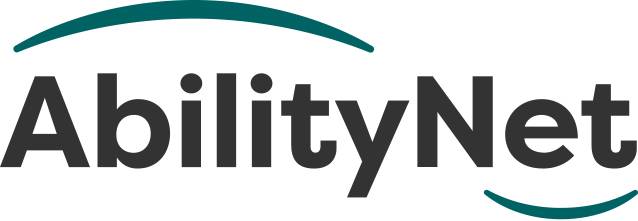
Usability and accessibility testing is crucial to the delivery of standards compliant web sites and applications. This is the only way of ensuring inclusion for all without any restrictions.
Ensuring 'real world' accessibility has been the driving force behind the partnership formed between Jadu, a leading provider of web content management and AbilityNet, a registered charity and one of the UK's leading experts in ensuring that technology solutions meet the needs of disabled users.
'AbilityNet is proud to be working with Jadu to make an impact on real life accessibility and usability of local government web sites for the disabled user' says Robin Christopherson, Head of Accessibility Services, AbilityNet.
Suraj Kika, CEO at Jadu worked with AbilityNet in establishing the partnership: 'Jadu's prime directive in developing web applications is to ensure usable, semantic design. Whilst automated tools are fine for mundane checking, it is no replacement for human beings with expertise in what makes a site accessible. That's why Jadu have partnered with the World's leading experts in web accessibility."
The Jadu - AbilityNet partnership ensures that all customers can benefit from 'express' accessibility and usability testing, at an early stage in a project's development. Outside of the legal requirements to meet the needs of disabled users for accessibility and usability, there is also a strong business case to deliver this. Web sites meeting the usability and accessibility standards are considerably more cost effective due to more effective channel marketing and in many instances the online option can replace - face to face, letter and telephone channels.
'An accessible site is easier to use for every visitor and cheaper to maintain and update. It will also reach the widest audience possible by increased compatibility with devices such as hand held and WebTV' says Christopherson.
There is a particularly high awareness of the need to ensure accessibility within the public sector. The announcement of the Manchester City Council Web 2.0 web site, powered by Jadu, is one of the first web sites in the country to benefit from the Jadu/Ability Net partnership approach.
'The Manchester City Council site was praised by end users and found to be 'highly accessible' with a range of impairments for its ease of use. The results of testing have been implemented in the site to further improve accessibility.' says Christopherson
The AbilityNet accessibility audit provides 'real life' end user testing by disabled users. This is described by the Disability Rights Commission (now Equality and Human Rights Commission) as 'extreme user testing'. Disabled users are involved in all stages of an audit test which vary in complexity according to web site content. AbilityNet utilises a range of tools and access technologies based on over 50 years' cumulative experience and knowledge in the areas of accessibility and usability. This enables a wide range of disabilities to be tackled, including vision impairment, learning disabilities and dyslexia.
'Organisations can sometimes perceive accessibility as a hurdle, worrying about league tables and automated reports. AbilityNet adds the much needed human element to testing. AbilityNet give organisations the reassurance they need, and disabled users the access they want' says Lee Pilmore, Senior designer at Jadu.
'As sites are increasingly using Web 2.0 technologies such as mashups and AJAX, accessibility needs to be considered at every stage of development. Exclusion rather than inclusion will be the result for years to come if this does not occur' says Christopherson
ENDS
About AbilityNet
AbilityNet is a charity that brings the benefits of computer technology to adults and children with all types of disabilities. Through its network of centres across the UK, it offers a comprehensive range of services to disabled people, professionals, employers and statutory bodies. It provides free information and advice on any aspect of computer use by disabled people including individual assessment of technology needs, adapted computer equipment with full training and technical support, a programme of awareness education, and consultancy for employers on system and workstation adaptations, as well as website accessibility.
In 2007 AbilityNet supplied free advice and information to some 850,000 enquiries through its national freephone and web-based services. In addition, the charity's consultants saw nearly 2,000 disabled children and adults face-to-face for individual assessments, equipment, training sessions and home support visits.
In the same year, AbilityNet's professional education courses and seminars attracted around 6,000 staff from public, private and voluntary sector organisations, seeking to develop their awareness of adaptive technology for those with disabling conditions and learn practical solutions to apply in the workplace, at home or in education.
AbilityNet is dependent both nationally and locally on grants and donations from charitable trusts and companies, to carry out its work on behalf of disabled people and those who support them.

